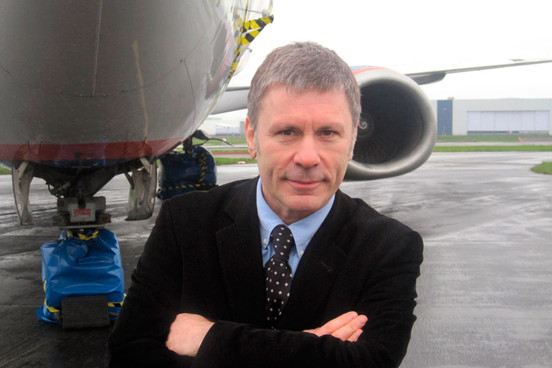Iron Maiden singer Bruce Dickinson has denied receiving a $500 million (£316 million) contract from the US military to manufacture drones.
The claim had been made on the blog Dorset Eye in a post titled: ‘Bruce Dickinson: Rock’n’Roll Warmonger’, which took as its source an announcement on a South African conference speakers’ website.
In a written statement to NME, a spokesperson for the band described the article as “spurious” and said: “This is a totally inaccurate and malicious piece of writing that seems to have stemmed from an unfortunate mistake in terminology on a South African website that the writer of said blog has since used as a starting point and catalyst to go off on a flight of sheer fantasy.”
They clarified: “Both Bruce Dickinson and Iron Maiden’s manager Rod Smallwood were early investors in, and remain great supporters of, Hybrid Air Vehicles (HAV), a company that has nothing whatsoever to do with drones, ‘lighter than air’ or otherwise!”
The company’s website outlines potential uses of the air vehicles. The spokesperson said: “The future implementation of HAVs is a likely global trend which has massive positive implications in many areas of life and both Bruce and Rod are proud to be involved with a British company at the cutting edge of this technology.”
The statement continues: “As with many far-sighted technological advances, early adopters and financial supporters tend to be military-based as they have the resources to invest and develop, be that everything from space-travel to medicine. Possible military use of HAVs in future could be for heavy-lifting, transportation or high altitude detection of IEDs (Improvised Explosive Devices), or similar, thus saving lives, both military and civilian.”
It concludes: “Rather than being involved in attacks in the Third World, as this writer has claimed in such an erroneously dramatic and defamatory manner, HAVs are designed to offer much needed assistance to civilians, businesses and governments that would be unavailable otherwise, due to the unique nature of these incredible vehicles.”


